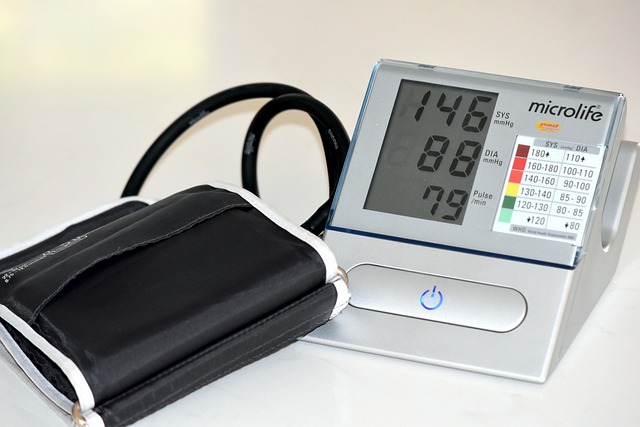The UK Vitamin D Blood Test is a simple yet vital tool for assessing and maintaining optimal health, as Vitamin D, often derived from sunlight, plays crucial roles in bone health, immune function, and mental wellbeing. Many individuals lack adequate levels due to modern lifestyles and varying climates, prompting the need for regular testing. A healthcare professional takes a small blood sample to analyze 25-hydroxyvitamin D (25(OH)D), with ideal levels above 75 nmol/L. Low levels can lead to issues like rickets or osteoporosis, so consulting a healthcare provider for dietary changes, increased sunlight exposure, or supplements is essential. Regular retesting ensures optimal Vitamin D levels, supporting overall wellness through proactive health interventions.
In today’s digital era, monitoring overall wellness has become a priority. One essential nutrient that often goes overlooked is Vitamin D, crucial for maintaining robust health. This article explores the significance of testing Vitamin D levels through a UK Vitamin D Blood Test. We’ll delve into what to expect during the test and highlight its critical role in enhancing your well-being. Additionally, we’ll discuss the benefits of monitoring your health and provide next steps after testing.
- Understanding Vitamin D: The Importance of Testing
- UK Vitamin D Blood Test: What to Expect and Why It Matters
- Monitoring Your Health: Benefits and Next Steps After Testing
Understanding Vitamin D: The Importance of Testing
Vitamin D, often referred to as the ‘sunshine vitamin’, is a crucial nutrient for overall health and wellness. It plays a vital role in supporting strong bones, immune system function, and even mental wellbeing. However, many individuals across the UK may have inadequate Vitamin D levels, which can lead to various health issues over time. This is because our bodies primarily produce Vitamin D when exposed to sunlight, but modern lifestyles and varying climates can impact this natural synthesis.
Testing Vitamin D levels in the blood is an essential step towards maintaining optimal wellness. A simple UK Vitamin D Blood Test allows individuals to gauge their nutrient status and take appropriate actions. If results indicate low levels, it may prompt lifestyle changes such as increasing sun exposure (while practicing safe measures), adjusting diet, or considering supplements. Regular monitoring can help prevent potential health risks associated with Vitamin D deficiency.
UK Vitamin D Blood Test: What to Expect and Why It Matters
In the UK, a Vitamin D blood test is a straightforward and essential method to monitor overall wellness. This test measures the amount of vitamin D in your blood, providing critical insights into your bone health and immune function. Vitamin D levels that are too low can lead to issues like rickets in children and osteoporosis in adults. It’s particularly important for people with limited sun exposure, as the primary source of this vitamin is sunlight.
During a typical UK Vitamin D Blood Test, a healthcare professional will take a small sample of your blood, usually from a vein in your arm. The sample is then analysed to determine your 25-hydroxyvitamin D (25(OH)D) levels. Results are typically reported in nanomoles per litre (nmol/L). Ideal levels vary slightly based on age and health conditions, but generally, a result above 75 nmol/L is considered adequate for bone health. If your levels are below this threshold, it’s advisable to consult with a healthcare provider about potential supplementation or lifestyle changes to ensure optimal overall wellness.
Monitoring Your Health: Benefits and Next Steps After Testing
After undergoing a UK Vitamin D Blood Test, understanding your results and taking appropriate actions is crucial for maintaining overall wellness. If your levels are low, it’s essential to discuss next steps with your healthcare provider. They may recommend dietary changes, such as increasing exposure to sunlight (when safe and appropriate) or incorporating vitamin D-rich foods into your diet. In some cases, they might prescribe a supplement. Regular monitoring is key; retesting at set intervals will help track your progress and ensure your levels are within the optimal range.
This proactive approach allows for timely interventions, supporting your health journey. Remember, maintaining adequate vitamin D levels contributes to bone health, immune function, and overall well-being. By taking control of your health through UK Vitamin D Blood Testing, you’re making a positive step towards a healthier future.
Vitamin D levels testing through a UK Vitamin D Blood Test is a powerful tool for monitoring overall wellness. By understanding the importance of this nutrient and its role in maintaining health, individuals can take proactive steps towards better well-being. The benefits of testing extend to various aspects of health management, encouraging regular checks as part of a holistic approach to staying fit and vibrant.
